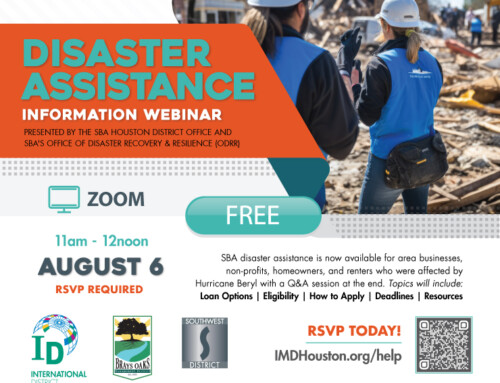Situation Update: Hurricane Matthew passed over Cuba and continues its destructive path toward the Bahamas and the U.S., leaving behind a trail of devastation that includes at least 11 deaths.
- Hurricane Matthew continues to fluctuate in strength, but is currently a Category 3 storm, moving slowly northwest.
- The storm pummeled towns, farmland and resorts and wiped out power to tens of thousands of people in the Caribbean.
o The storm caused severe flooding, wind damage, storm surges, and landslides in Haiti. Civil defense officials in Haiti reported that many homes are destroyed or damaged in the South. The full extent of Matthew’s impact on Haiti remains unclear at this time, as communications and power have been disrupted to many parts of the country.
o Aid is underway in the Caribbean, with a focus on shelter and clean water.
- In the U.S., Florida, Georgia, South Carolina and North Carolina have each declared a state of emergency.
o The entire east coast of Florida is under a hurricane or tropical storm warning or watch. (A warning means the storm conditions are expected within 36 hours, a watch means the conditions are possible within 48 hours.)
o Latest predictions show Georgia could be more impacted than originally expected.
o Along the South Carolina coastline, more than one million people are being evacuated by 3pm today.

International Response: The American Red Cross has been collaborating with national societies across the Caribbean and the International Federation of Red Cross & Red Crescent Societies (IFRC) to prepare communities and build response capacity of the national societies. The storm remains over the Bahamas and is moving slowly, bringing high wind and heavy rainfall to many regions in its path.
- Haiti: As weather conditions allow, Haitian Red Cross and American Red Cross teams are beginning damage assessments.
o The storm washed out a major bridge in Petit-Goave which connected the capital city of Port-au-Prince with the western region of the country, severely limiting access to the most affected area. Prior to landfall, the American Red Cross delegation alongside the Haitian Red Cross teams prepositioned teams and relief supplies in areas where the worst damage was anticipated. Fortunately, because of the prior planning, Red Cross teams can begin preliminary aid efforts.
o In other parts of the country, delegation staff are also beginning damage assessments and distribution of relief supplies.
o The American Red Cross is deploying two Disaster Response Specialists to assist the IFRC and ARC field staff with emergency operations.
o The American Red Cross delegation in Haiti is leading taking a lead role in the coordination of relief supply distribution efforts across the country.
- Caribbean:
o The American Red Cross has a strong presence in the Caribbean.
- The American Red Cross is providing Information Management and Geographic Information Systems (IM/GIS) support remotely for Hurricane Matthew. This includes the production of maps of Haiti to illustrate flood zones, areas at risk for landslides and vulnerable communities.
- An American Red Cross delegate in the Bahamas is coordinating IFRC relief efforts in country.
- Ongoing American Red Cross programs in the Caribbean are also in play, which focus on disaster risk reduction, including activities to train local disaster response teams, map evacuation routes, and develop early warning systems.
o In Jamaica, Jamaican Red Cross workers are beginning damage assessment and preliminary relief supply distribution which includes blankets, kitchen kits and cleaning supplies.
- For those concerned about loved ones outside the United States: The best way to locate U.S. citizens living or traveling overseas is to contact the U.S. Department of State, Office of Overseas Citizens Services, at 1-888-407-4747 or +1 202-501-4444. Those searching for non-U.S. citizen family members can contact the American Red Cross Restoring Family Links unit at redcross.org/reconnectingfamilies.
Domestic Preparation: The American Red Cross is closely monitoring the path of Hurricane Matthew and its potential to affect multiple states in the U.S.
- From Florida to New England, the Red Cross is finalizing hundreds of shelter plans and preparing vehicles and supplies.
- Trained Red Cross disaster relief workers are being mobilized across at-risk states.
- Red Cross workers are coordinating with government officials and partner organizations to finalize potential response plans and share information.
Below is the approximate timing of the worst wind and surge impacts of Hurricane Matthew:
- Southeast Florida: Thursday through early Friday
- Northeastern Florida/Georgia coast: Friday through early Saturday
- South Carolina: Saturday and Saturday night

The Red Cross is urging people in the potential path of Hurricane Matthew to stay informed about the storm and take steps to get prepared now.
Hurricanes are strong storms that can be life-threatening as well as cause serious property-threatening hazards such as flooding, storm surge, high winds and tornadoes. Preparation is the best protection against the dangers of a hurricane. Know the difference between the threat levels and plan accordingly.
- Listen to a NOAA Weather Radio for critical information from the National Weather Service (NWS).
- Check your disaster supplies. Replace or restock as needed.
- Bring in anything that can be picked up by the wind (bicycles, lawn furniture).
- Close your windows, doors and hurricane shutters. If you do not have hurricane shutters, close and board up all windows and doors with plywood.
- Turn your refrigerator and freezer to the coldest setting. Keep them closed as much as possible so that food will last longer if the power goes out.
- Turn off propane tank.
- Unplug small appliances.
- Fill your car’s gas tank.
- Create a hurricane evacuation plan with members of your household. Planning and practicing your evacuation plan minimizes confusion and fear during the event.
- Find out about your community’s hurricane response plan. Plan routes to local shelters, register family members with special medical needs and make plans for your pets to be cared for.
- Obey evacuation orders. Avoid flooded roads and washed out bridges.
- Stay informed by downloading the free Red Cross Emergency App which puts real time information and hurricane safety tips as your fingertips. The Emergency App is available in app stores by searching for the American Red Cross, texting GETEMERGENCY to 90999 or going to redcross.org/apps.







Leave A Comment